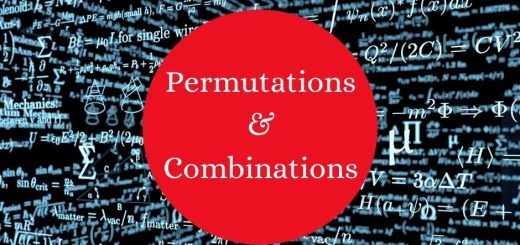Top 5 strategies to master GRE Sentence Equivalence
GRE Sentence Equivalence questions are single blank questions that ask for two right answers from a set of six. These questions might seem like they’re simple and straightforward by just merely looking at the set of instructions. But does it actually turn out to be that easy?
Students usually face 4-5 Sentence Equivalence questions in every verbal section. Complete credit for a particular question is allotted only when you get both the options right. There is no partial credit and this scares most of the test-takers.
While answering questions, majority of the students tend to make mistakes because the right option doesn’t always depend on the actual meaning, but rather on the usage in a particular context.
This is where some quick strategies can help you tackle GRE Sentence Equivalence with ease. Right combination of these tips and practice can help you master GRE Sentence Equivalence. Let’s quickly get down to the techniques.
1. Look for synonyms
After you read the question for GRE Sentence Equivalence, do not jump to the options instantly. Try to guess the word that would accurately fit the blank. Then go to the options. In most cases, the words you are looking for are a synonym pair. It is possible for two words with slightly different meanings to be appropriate choices. But, always remember that their meanings will always be similar. By finding paired words among the answer choices, you can narrow down the possibilities easily.
To do this more efficiently, you need to adept with all the GRE words. To understand the process of learning and retaining words, click here.
2. Find the category of word that you need
If you are not sure of how to go forward with the answer choices, ask yourself if the word you are looking for will have a positive or negative tone. Determining a very broad category can help you narrow down your choices. Even if you do not understand the meaning of some words in the answer choices it is fine!
If you know you are looking for a negative term then your knowledge of prefixes or root words can help you eliminate some answer choices.
3. Use context clues
Now! This is important! The function of the question statement is to provide context for the blanks; so there should be hints in the question statement to help you narrow down the answer choices. Think of the function that the word in the blank serves in the sentence.
Asking such basic questions will help you figure out what you need to complete the meaning.
Example:
Joe’s fall ________ him from indulging in any outdoor activity, though skiing and trekking are his favorites.
- enabled
- prevented
- did not permit
- sensitized
- aggravated
- marked
Explanation:
The context of this sentence is:
- Joe has a fall
- It does something to his taking part in outdoor activities
- He enjoys skiing and trekking
There is a contrast indicated by the word, “though.” So you know that his fall does not allow him to take part in outdoor activities. So you choose options B, prevented and C, did not permit.
4. Pay attention to important adverbs.
Adverbs such as conversely, however, secondly, furthermore, moreover, nevertheless, etc., establish relationships between clauses. Look at these examples to understand better.
Example:
Although Tim did not believe that the seminar would do him any good, he nevertheless attended it to accompany his friend.
Notice the contrast in meaning between the two parts of the sentence (before and after the comma). This contrast is indicated by the adverb, “although.”
5. Look at the grammatical structure
Being aware of some basic grammatical structures can help you crack sentences. For example, you can look for parallel sentence construction, which is nothing but a repetition of a grammatical form within a sentence. Since the pattern repeats in this form, it will be easy for you to guess the meaning of the word the blank wants you to identify.
Notice how the underlined parts take the same form in these examples. The incorrect forms are also shown for your reference.
Example:
Correct: Mike not only wanted his presentation to be creative but also wanted it to be effective and persuasive.
Incorrect: Mike not only wanted his presentation to be creatively done but also wanted it to be effective and persuasive.
Now let’s understand how to apply these techniques in GRE Sentence Equivalence Questions
Question 1:
One could understand Schumann’s _________ state of mind when he failed miserably to connect to anything that the antiquated copy of The Backpackers Guide to India was taking about.
- stymied
- analytical
- disappointed
- cynical
- melancholic
- dispirited
Explanation:
You understand Schumann is a traveler/tourist/backpacker from the title of the book that he refers to for his travel. The book seems to be an outdated copy (antiquated copy) and Schumann is not able to relate to the things that are mentioned in the book with what he sees in reality. So he becomes _______.
Clues & Answers:
The blank describes Schumann’s state of mind.
when he failed miserably to connect to anything that the antiquated copy of . . . :
From this clue, you understand that Schumann is not able to relate to things he sees since he had referred to an outdated tourist guide. He should be feeling let down. This leads you to answer choices C, disappointed and F, dispirited.
Why Not?
stymied: a condition when the progress is hindered
This is a probable choice, however, among the other options there is no similar-sounding word to be paired with this for the SE question. So you look at other options.
analytical: using logical reasoning
Schumann travels with the travel guide in his hand and he finds a lot of differences between what is there in the book and the place. His state of mind cannot be analytical; he would rather feel frustrated.
cynical: skeptical
Schumann can feel disconnected since his vision of the place from the book is largely different from what he sees in reality, but not skeptical or cynical.
melancholic: feeling deeply sad
Schumann’s immediate reaction can be one of irritation and not melancholy.
————————————————————————————————————————————————————————————–
If you systematically apply all these techniques, you can easily eliminate the incorrect options. Understanding and applying these techniques can be mastered only by solving challenging problems
So, here’s the challenge!
This question can be daunting! Let my comment box explode with your answers and explanation. Here you go!
Solve this question!Comment below!
Fans of P. G. Wodehouse do not respond well when he is criticized: with such lighthearted approach to life, his books are ________ to frustrations and are tonics for those suffering from the heaviness of soul.
- curative
- anodyne
- assuagement
- soporific
- therapeutic
- dreary
If you have any more queries, type in the comment box and I’ll answer them personally. You can also download the eBook on “Ultimate tips to crack GRE Verbal”.
Happy learning with AdmitEDGE!

















Anodyne and Assuagement
curative and therapeutic
CURATIVE AND THERAPUTIC